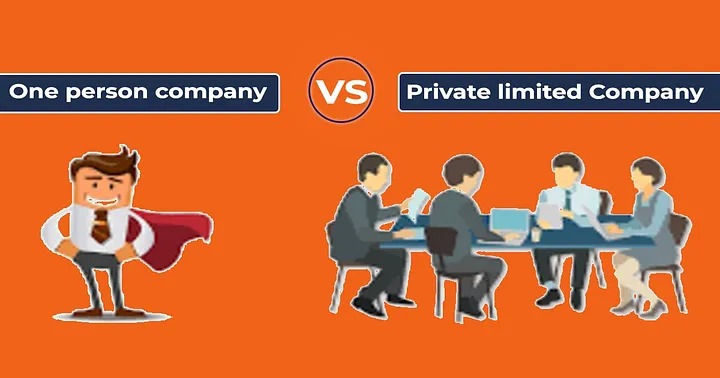One Person Company Vs Private Limited Company

When it comes to starting a business, one of the crucial decisions to make is choosing the right business structure. Two popular options for aspiring entrepreneurs are One Person Company (OPC) and Private Limited Company. Both structures have their own set of advantages and disadvantages, and it’s important to understand the differences between them before making a final decision. In this article, we will compare and contrast the key aspects of one person company vs private limited company to help you make an informed choice for your business venture.
One Person Company Vs Private Limited Company
Discover the differences between One Person Company and Private Limited Company to choose the right business structure for your venture. Make an informed decision today!
What is a One Person Company (OPC)?
A One Person Company (OPC) is a type of business entity that allows a single individual to operate a corporate entity with limited liability. It was introduced in India under the Companies Act, 2013 to provide a more organized form of business for small entrepreneurs. The key features of an OPC include:
Sole Proprietorship: An OPC is owned and managed by a single person. Who acts as the director and shareholder of the company.
Limited Liability: The liability of the owner is limited Liability company to the extent of their investment in the company, providing a safeguard for personal assets in case of debts or losses.
Legal Recognition: An OPC is considered a separate legal entity, distinct from its owner. Which enhances credibility and trust among clients and partners.
What is a Private Limited Company?
A Private Limited Company is a popular form of business structure that requires a minimum of two directors and two shareholders. It is governed by the Companies Act, 2013 and offers various benefits such as limited liability, separate legal identity, and ease of raising capital. Some key features of a Private Limited Company include:
Separate Legal Entity: A Private Limited Company is considered a distinct legal entity from its shareholders. Which means the business can enter into contracts and own assets in its own name.
Limited Liability: The liability of the shareholders is limited to their share capital, protecting personal assets from business debts and obligations.
Ease of Funding: Private Limited Companies have better access to funding from investors, banks, and financial institutions due to their structured governance and accountability.
Differences Between One Person Company and Private Limited Company
Ownership and Management
One Person Company: Owned and managed by a single individual. Who acts as the director and shareholder of the company, leading to complete control and decision-making power.
Private Limited Company: Requires a minimum of two directors and two shareholders, allowing for shared ownership and distributed management responsibilities.
Liability Protection
One Person Company: Provides limited liability protection to the sole owner, safeguarding personal assets from business debts and liabilities.
Private Limited Company: Offers limited liability to shareholders, ensuring that personal assets are not at risk in case of financial obligations or legal disputes.
Legal Formalities
One Person Company: Less stringent compliance requirements compared to a Private Limited Company, making it easier to maintain statutory records and filings.
Private Limited Company: Requires adherence to more regulatory formalities, such as annual audits, board meetings, and compliance with corporate governance standards.
Tax Implications
One Person Company: Taxed as a separate legal entity, with profits subject to corporate tax rates and dividends taxed in the hands of the shareholder.
Private Limited Company: Taxed at a flat corporate tax rate of 25% (subject to conditions), with the option to distribute dividends to shareholders tax-free.
Conclusion
In conclusion, both One Person Company Vs Private Limited Company have their own set of advantages and limitations, depending on the nature and scale of the business. For small businesses and sole entrepreneurs looking for simplicity and limited liability, an OPC may be the ideal choice. On the other hand, Private Limited Companies offer greater scalability, funding opportunities, and credibility in the market. It’s essential to carefully evaluate your business goals, risk appetite, and long-term vision before selecting the most suitable business structure for your entrepreneurial journey.
By comparing the key aspects of One Person Company and Private Limited Company. You can make an informed choice that aligns with your entrepreneurial goals and aspirations. Remember, the right business structure can pave the way for long-term success and growth in the competitive business landscape.





